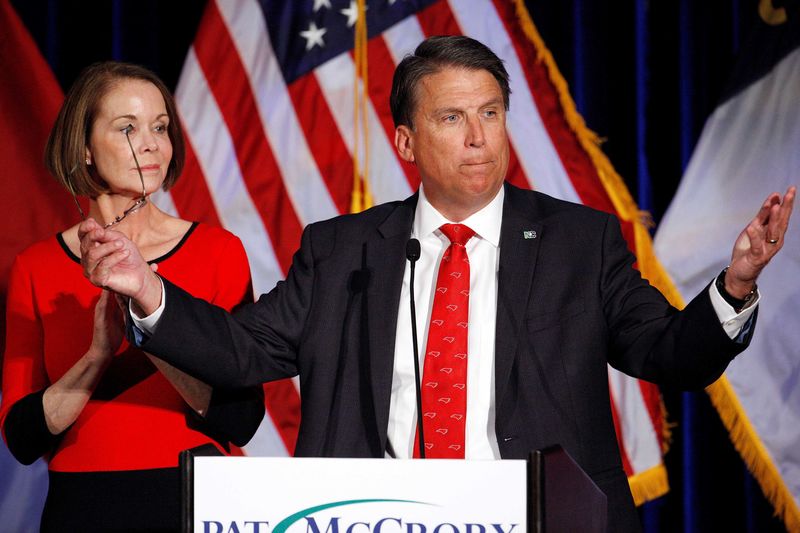By Colleen Jenkins
WINSTON-SALEM, N.C. (Reuters) - North Carolina Governor Pat McCrory on Monday conceded the state's contested gubernatorial race to Democrat Roy Cooper, almost four weeks after the Nov. 8 election that many viewed as a referendum on a law limiting transgender bathroom rights.
The Republican incumbent had trailed his challenger since election night, when Cooper declared victory with a margin of fewer than 5,000 votes. McCrory refused to bow out, vowing to seek a recount and challenging the validity of votes his campaign said may have included ones cast by felons or dead people.
As of Monday, the state's unofficial election results showed Cooper's lead had grown to 10,263 votes as counties continued to tally ballots. McCrory was entitled to a recount only if he trailed by 10,000 votes or less.
In a video message issued by the governor's office, McCrory said Cooper had won "the closest North Carolina governor's race in modern history."
"Despite continued questions that should be answered regarding the voting process, I personally believe that the majority of our citizens have spoken," said McCrory, who sat on a couch with a Christmas tree in the background in the video.
Cooper's win over the one-term incumbent marks the only governorship picked up by Democrats nationally, while Republicans added governor seats last month in New Hampshire, Missouri and Vermont.
Cooper, the state's attorney general, said serving as governor "will be the honor of my life."
"While this was a divisive election season, I know still that there is more that unites us than divides us," he said in a statement after his opponent's concession.
The Democratic candidate's bid benefited from a backlash against McCrory after he signed a state law in March that bans transgender people from using government-run restrooms that match their gender identity and limits protections for gays and lesbians.
The law, the only of its kind in the United States, drew national attention. It has been blamed for hundreds of millions of dollars in economic losses and the relocation of major sporting events from the country's ninth most populous state.
Opponents of the measure, known as House Bill 2, said a McCrory defeat would have national implications.
"McCrory's stubborn and reckless support of HB 2 cost him this election, and his defeat sends a powerful warning to lawmakers across the country that targeting LGBTQ people will not be tolerated," Chad Griffin, president of the Human Rights Campaign, said in a statement.

LGBTQ stands for lesbian, gay, bisexual, transgender, and queer (and/or questioning) individuals/identities.